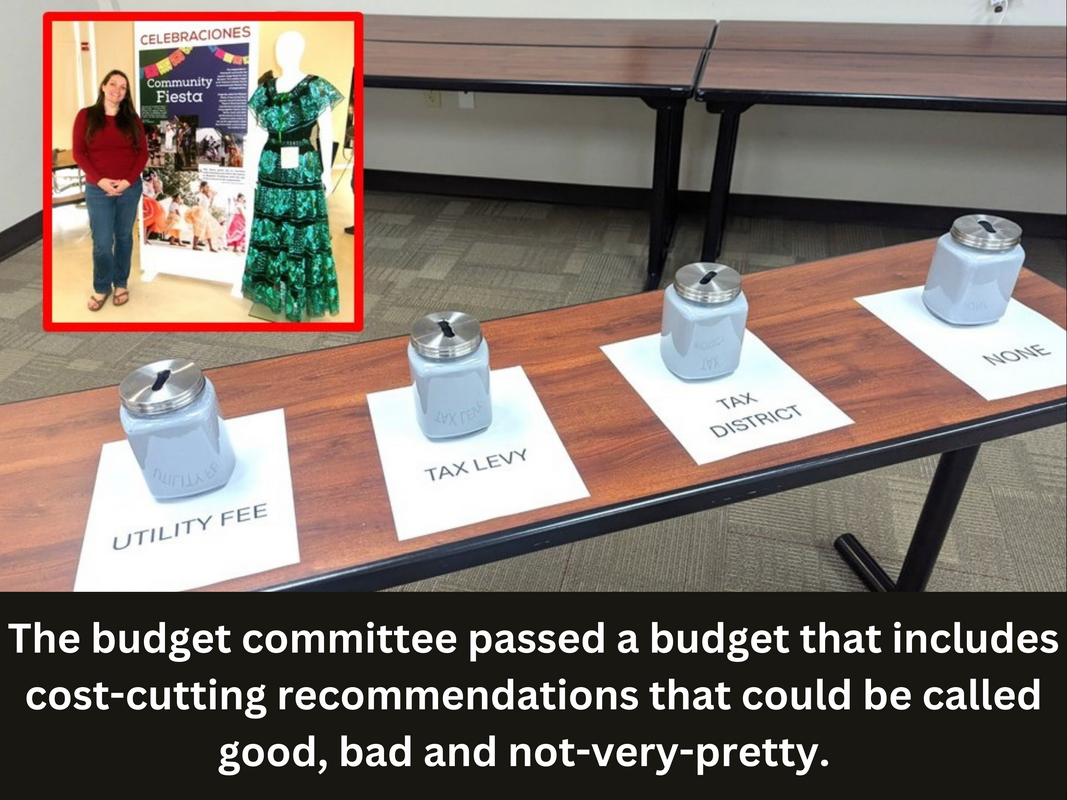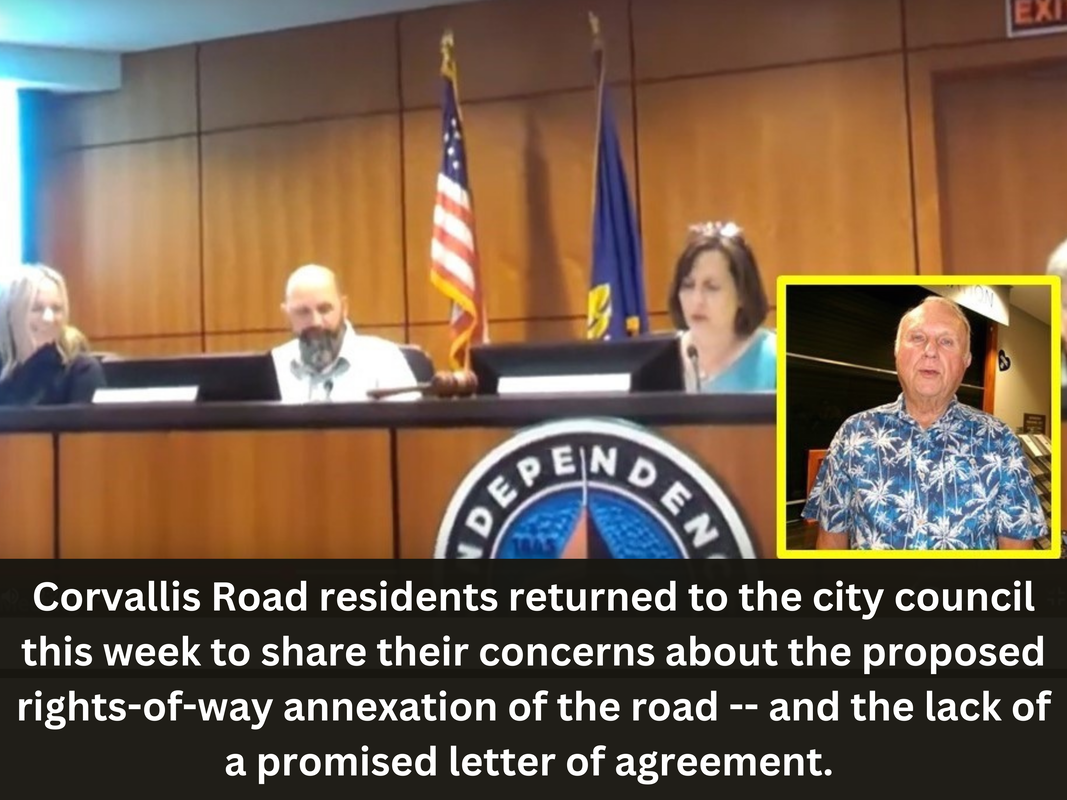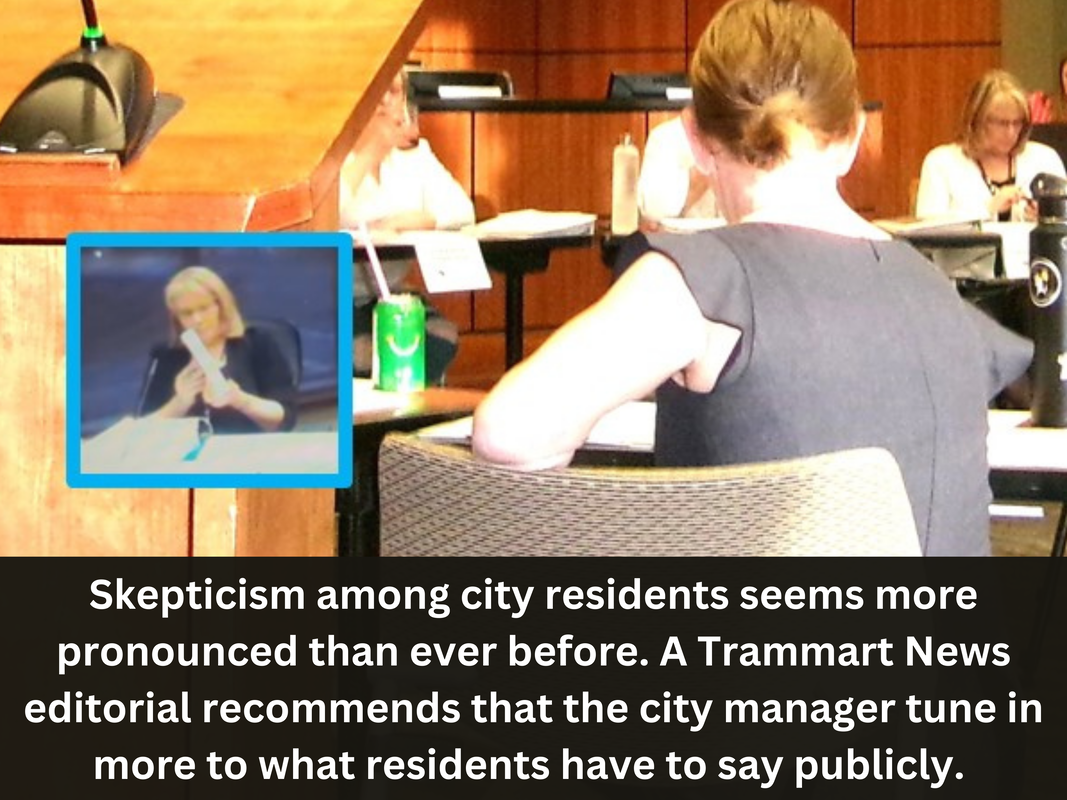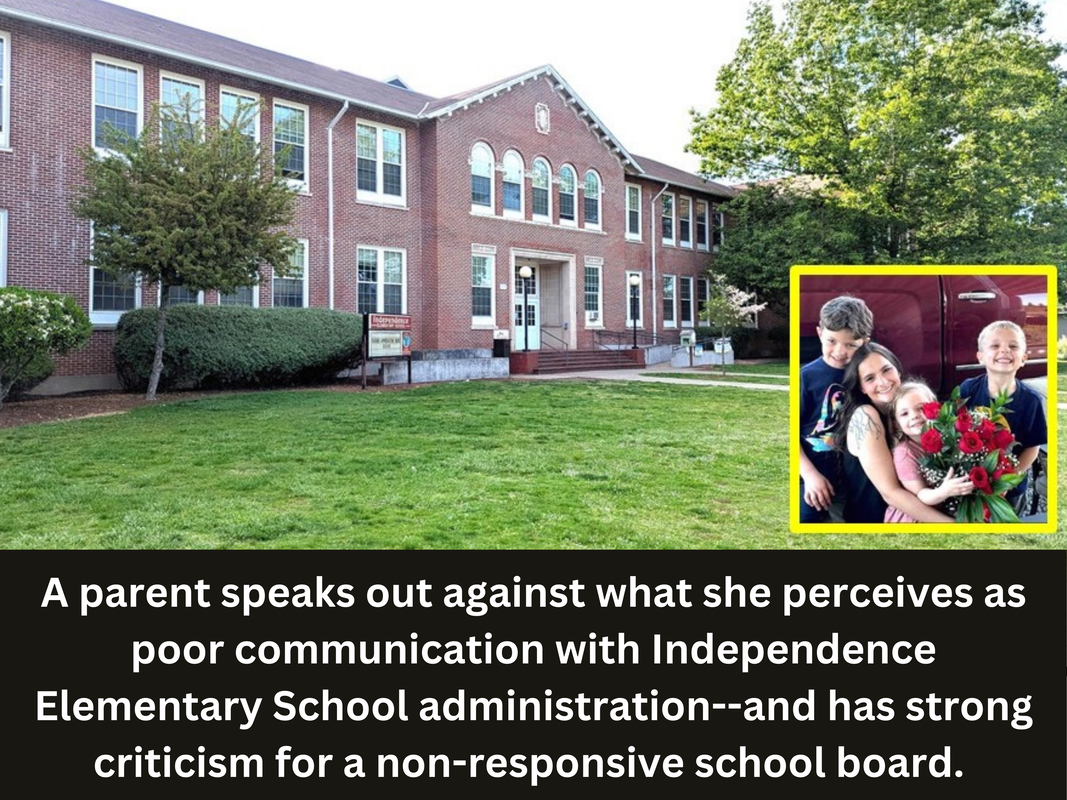By Anne Scheck
Trammart News Service, May 30, 2025
A synthetic compound called PFBS – part of a group of chemicals known as PFAS – has been detected in samples taken from Independence wellfields and is listed in the city’s 2024 Annual Drinking Water Quality Report.
PFBS is one of the “forever chemicals” in the PFAS family that has been used in the development of heat-resistant products, such as fire-fighting foam. Because of suspected health effects, PFAS are no longer being used in many products. Last year, for example, the FDA announced PFAS would cease being utilized as a grease-proofing agent in food-packaging products.
Levels in Independence water samples are very low – the average levels of this contaminant were listed as 3.3 and 3.15 parts per thousand, far under the 2000 PPT health-advisory limits of the Environmental Protection Agency, as stated in the city report. The report also notes that PFBS content doesn’t yet have a drinking-water standard for assessment – that may be one reason monitoring has been considered an important step.
Asked about how PFBS in water should be explained to residents, the city’s communications director, Emmanuel Goicochea, didn’t respond to several inquiries from Trammart News.
PFS and related chemicals continue to be under investigation because of multiple health effects associated with exposure to them – findings that have been identified and are supported by various scientific studies, according to the National Institutes of Health.
PFBS was found in Independence water samples taken from both wellfields relied upon by the city, “Polk Street” wells and the “South” wellfield. The city utilizes water from those two sources, according to an online explanation of the water system at the city’s website.
Three years ago, Independence was one of only five water systems found with PFAS when 140 drinking water systems were tested in a special project by the Oregon Health Authority. Previously, City Manager Kenna West had indicated she considered PFAS in Independence water a non-issue.
The EPA is examining these “forever chemicals,” as they are often called, to determine toxicity over time – including by well-water use. An 83-page EPA review of PFBS effects on animals and humans was published in 2021, concluding that more research is needed.
Under the new U.S presidency, changes for the agency have been undertaken, although the new EPA administrator, Lee Zeldin, pledged this month that improvements in water assessment are on the way. The EPA is seeking ways to clarify water-quality standards for these chemicals, according to a news release issued by the agency about three weeks ago.
As part of the state's Toxics Reduction Program, the Oregon Department of Environmental Quality announced plans several years ago to work with the Oregon Health Authority toward better understanding about the implications of PFAS for Oregon. However, the DEQ web page dedicated to updates currently notes that it is awaiting current work and recent decisions from the EPA. ▪
By Anne Scheck
Trammart News Service, May 30, 2025
This year, Talmadge Middle School saw an almost 20 percent decrease in disciplinary incidents related to poor attention in class from engaging in outside distractions. That’s because the school decided to put strict limits on cell phones to create “spaces of focus” when instruction was taking place, according to teachers and administrators there.
The school may be doing more than clearing the way to better academic performance. From the executive director at The Gate Community Youth Center, across from Central High School, to the director of mental health & social-emotional learning at the Salem-Keizer School District, across the bridge, those who work with youth and teens say mental health benefits are one of the added advantages of reducing cell-phone use.
For students, cell phones don't seem to be used predominantly as a source of connection, at least in many cases. Instead, phones seem to be a way for teens to disengage and turn to a familiar place where they can be entertained by short videos, check or send texts or tune in to a favorite game site, said Ben Bobeda, executive director of The Gate, where many teens congregate for extracurricular programs.
"When you see this happening in a social setting where participation is just as available with others as the phone, it's worrisome," said Bobeda. In fact, data last year from the Pew Research Center shows very heavy use of TikTok and Instagram by adolescents, with about 50% reporting their use of cell phones during free time is nearly constant.
In a program last year at the Salem City Club, “Mental Health Needs of Oregon Youth,” Chris Moore, who directs the program for social and emotional learning at Salem-Keizer schools, pointed out that there are phone apps that give immediate feedback on questions ranging from relationship advice to chatty check-ins with the user – features that seem to humanize chatbots, transforming them into instant companions.
A year ago, the Journal of Research in Innovative Teaching and Learning called for addressing “ethical concerns” about such uses, while noting there also is high educational potential for tools that use artificial intelligence.
This week, in the last few days of national Mental Health Awareness Month, Education Week weighed in with the pronouncement that competing “for the attention of tweens and teens” is not only complicated by cell-phone use but is having adverse effects “beyond school buildings.” These include the impact of online bullying to increasing rates of anxiety and related mental health challenges, according to Elizabeth Heubeck, the article’s author.
The article examines examples from some of the schools that have implemented bans – and nearly half of the U.S. states have legislation that compels that action.
At Talmadge Middle School this year, “we've implemented limits on cell phone use during the school day – excluding lunchtime – and we’ve already seen encouraging results,” observed teacher Holly Boyles.
By setting clear boundaries, such as requiring phones to be off and stored during class time, a learning environment was created in which there were more “meaningful face-to-face interactions,” she said. “We've also noticed that students are more likely to engage with one another during breaks and lunch, helping build social skills and a stronger sense of community,” Boyles added.
Bobeda agrees. He sees students from the high school who are building personal bonds at The Gate by becoming immersed in restoring an engine or playing foosball – fostering connections in a way that cell phones can't.
What is so special about a game of tabletop soccer or a car engine tune-up? Bobeda has that right, too. Special tasks or interest-oriented undertakings by students create a strong sense of belonging, according to early results from Oregon's Student Educational Equity Development Survey (SEED).
Begun statewide in 2023-24, SEED aids the Oregon Department of Education gather data about the educational experiences from students statewide, in grades 3-11. Scoring high among students are programs that seem the opposite of cell phones – hands-on activities, heavy on conversation and back-and-forth talk about instruction and goals, like those ranging from career and technical education to high school theater groups.
It’s been eight days since Gov. Tina Kotek reportedly said she was mulling an executive order to ban cell phones from learning periods in schools and nearly eight months since the Oregon Department of Education recommended that school districts find an “acceptable use policy” that would keep cell phones out of the hands of students during class. House Bill 2251, which died this month in the Oregon Legislature, would have directed schools to do that – and to implement policies for consequences if students violated the new rule.
The Talmadge plan has shown that “clarity and consistency have been key to the majority of our student body meeting expectations with phones,” according to a statement from the administration there.
Sixth-grade Talmadge teacher Karina Newbeck noted that “not once have I had to ask a student to put away their phone this year.”
How can other schools achieve this surprisingly low level of pushback? “Making the policy clear at registration for incoming sixth graders, and having all staff enforce it has made a huge difference in teaching,” Newbeck stated. “I know the older kids struggle a little bit more, but in my world it has decreased significantly.”
Bobeda doesn't see this just as a "teen problem" however. Parents, siblings and other family members also may be heavily involved in technology, too. So, the message that some youths get is that this is a typical way to spend time. "We all do that, but I think doing it to the extent that you're losing time that could be spent in personal encounters" is causing a shift in socialization, he said.
Studies back up that observation, demonstrating a loss of social skills that apparently directly relates to cell phone use. Mentors have helped students gain new traction – 85% of young people who have a mentor cite it as a key relationship in helping them with school and education, according to data from The Gate.
There is no substitute for person-to-person contact, said Derek Conn, the mentor coordinator at the Gate. “These connections cannot be made any other way,” he said. ▪
By Anne Scheck
Trammart News Service, May 30, 2025
A recent count of the homeless population in Independence shows numbers ticked up this year – but the pathway to securing housing for people who need it looks a whole lot harder, the possible result of a growing federal and state bureaucracy.
That was the message this week in three separate presentations at the Polk County Board of Commissioners meetings. Though the combined homeless population, plus those most “at-risk” for it, is 45 in Independence, that’s likely because more targeted ways were undertaken for identifying these individuals this year, according to Ryan Pollard, the county liaison for homeless prevention. In 2023, the Independence count was 34.
In a presentation to the commissioners Tuesday, Pollard, who works out of the Polk County Family and Community Outreach Department, explained the point-in-time count, or PIT count as it is known, used strategies to seek out under-the-radar persons this time – those living in cars and RVs, who may be far less visible than those inhabiting tents and encampments.
County Commissioner Lyle Mordhorst said these numbers – 369 county-wide – reflect a large section of homeless people who differ from those seen in other cities. “These are families that just can’t make the rent,” he said. One bad turn of luck means they face losing where they live, he pointed out during “The State of the County” address, which was held Wednesday night.
As an example, he cited an elderly couple living on $2,700 monthly in Social Security, and who can barely afford the $1,400 in rent they pay along with utilities and other expenses. “When one of those spouses dies, part of that Social Security payment is now gone, and what comes next is a loss of the ability to pay for housing,” he said.
New federal rulemaking threatens to extend the time needed for placing such individuals quickly into shelter or providing the means to keep them housed – and state bureaucracy also can slow it down, too, said Jessica Blakely director of development and strategy for the Salem Housing Authority.
In a separate presentation to the commissioners, she asked for their support with legislators, due to her worry over compliance-related regulations and policies that will consume much more time. A state "pass through" for federal money, for instance, has the potential to increase the bureaucratic burden, she said.
Commission Chair Craig Pope pointed out that government fraud in such programs is a common public concern, but he observed that this has created more regulatory demand. Blakely said her agency has been vigilant about detecting fraud, but the process involved in proving it often is cumbersome and costly. One outside investigator was paid $12,000 and, even then, such cases go through a lot of legal steps, she pointed out.
The difficulty in VA referrals is due to the Portland-based office, not the local Veteran Services Office, said Christian Edelblute, executive director of West Valley Housing Authority, during his presentation to the commissioners. Like Blakely, he is uncertain what new regulations and rules updates will be imposed in the coming year.
Following her presentation, Blakely said she felt supported by the Polk County Commissioners – that the three were “in her corner.”
In Polk County, the PIT reflects that an overwhelming majority – 80% and more – of the homeless or at-risk population has a connection to the county. In Dallas, the PIT count found 96 such individuals and it was 75 in Monmouth. ▪
















 RSS Feed
RSS Feed